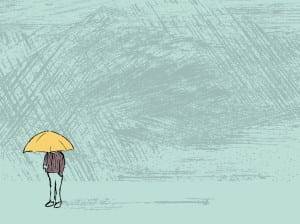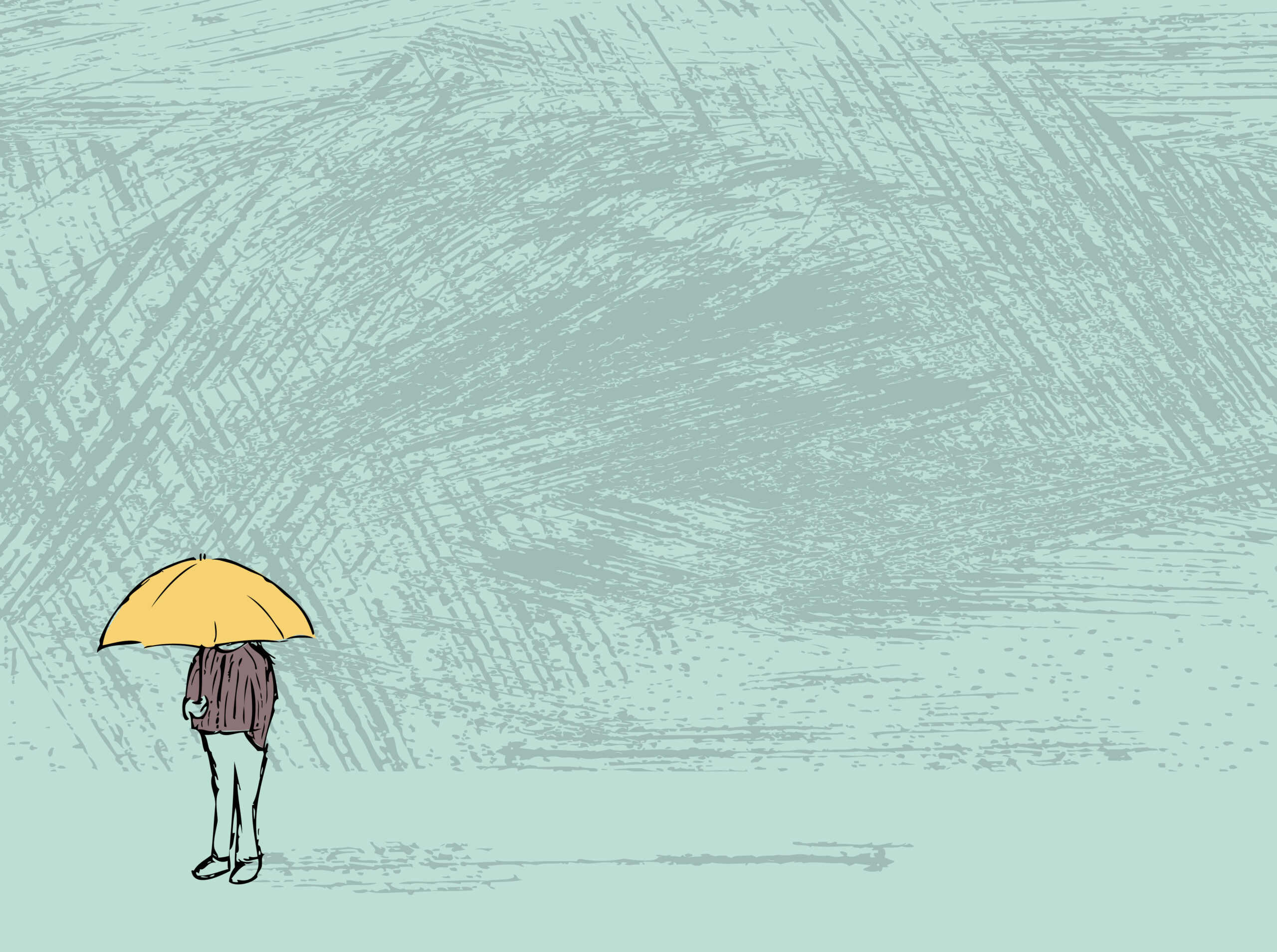 By Richard J. Loebl, LCSW, BCD
By Richard J. Loebl, LCSW, BCD
This article is written from a personal, as well as professional point of view. My family, like so many others, has suffered greatly due to depression. My mother was depressed most of her life, and my sister and I have struggled with depression at times. Our family “illness” motivated me to become a psychotherapist 40 years ago.
What is depression?
Depression is an illness or medical disorder.
It is generally accepted that depression is an illness – also known as a mood disorder. All of the leading national and international health and mental health organizations endorse the medical or disease model of depression (including the World Health Organization, the AMA and APA, and the National Institutes of Mental Health). There are several diagnostic categories for depression in the DSM (Diagnostic and Statistical Manual of Mental Disorders).
There is no doubt that my mother suffered from a clinical depression and bipolar disorder (mood swings). Her inability to function as an independent adult, her suicidal behavior, and frequent hospitalizations were all indications of acute and chronic illness. Her depression was a mood disorder, but also a personality trait and a subconscious coping strategy.
Depression is a personality trait or disorder.
There is ongoing debate about depression and personality. Personality is defined as an enduring, life-long pattern of behavioral and emotional characteristics, along with beliefs, perceptions, and relationship patterns. I’ve known many people, personally and professionally, with depressive personalities or personality traits. I’ve struggled myself with pessimistic, negative beliefs and attitudes. Many people are consistently gloomy, cynical, and disagreeable – but they would not fit the diagnostic criteria for a depressive mood disorder.
Depression is a coping method and a choice.
Is it possible that depression could also be a strategy for dealing with problems? Most people don’t consciously choose to become depressed. However, we mostly do have the ability to choose between facing our problems and acting responsibly and productively – or to choose an escape route that may include avoidance, blaming, complaining, and sinking into a state of overwhelm, helplessness and hopelessness. Frequently, trauma survivors (adults who were abused or abandoned during childhood) may develop a victim mentality. This is a type of addictive process that results in unhealthy coping strategies such as depression.
My mother was abused and emotionally abandoned by a narcissistic mother and alcoholic father. She functioned in a reasonably healthy manner until middle age. However, throughout her life she had depressive personality traits (negative, pessimistic, irritable and “moody”). And her coping style included avoidance, denial, complaining and blaming. She often felt like a victim, and she taught me that life was hard, unfair, and that I had limited choices.
How do I know if I’m depressed?
The signs and symptoms of depression include
* Depressed mood (sad, empty feelings, or feeling emotionally numb)
* Low motivation, low energy, indecisiveness, and loss of interest
* Feeling helpless, hopeless, and feelings of worthlessness
* Irritability and restlessness
* Insomnia or sleeping excessively
* Loss of appetite or overeating
* Inability to concentrate or remember details
* Suicidal thoughts
If you have 2 or more of these symptoms you may be clinically depressed, and you should speak to a licensed mental health professional.
What are the different types of depression?
There are 3 primary types of depression (and many sub-types) commonly seen by mental health professionals:
1. Dysthymia – Literally a “bad state of mind” – sad or irritable mood, often with low self-esteem and some of the symptoms listed above. It tends to be a chronic condition that is considered mild or moderate in comparison to Major Depression or Bipolar Disorder.
2. Major Depression – Similar to Dysthymia, but more severe, with more symptoms that result in impaired functioning.
3. Bipolar Depression – A type of Major Depression that may include mood swings and cycles of depression and mania.
I propose 3 additional sub-types of depression, based on years of clinical and personal experience. These proposed sub-types may include people who meet the criteria for a more formal type of clinical depression as listed above.
> Victim Mentality Depression – People who see themselves as victims often experience a type of depressed mood, along with feelings of helplessness, negativity, defensiveness, and a lack of responsibility and accountability. Often, children who experience childhood trauma (neglect, abuse and abandonment) develop a victim mentality that becomes central to their character structure as adults. Their depression results from seeing themselves as victims.
> Relational Depression – This is a unique type of depression found in many relationships in distress. Each individual may be depressed, and the relationship itself becomes depressed. In Relational Depression, patterns of emotional reactivity develop between two people. Most commonly there is complaining or blaming, alternating with defensive arguments, often leading to criticism and angry escalations. Another common pattern is shutting down, withdrawal and distancing. The emotional energy may die out in these relationships, and the relational mood is depressed (sad or emotionally numb, low energy, and the type of isolative behavior often seen in depressed individuals).
> Angry Depression – This sub-type of depression is often seen in Dysthymia and in people with depressive personality traits. In the 1980’s I consulted a psychiatrist because I was frequently angry and irritable, and I thought medication might help. He told me I was probably depressed. People who seem to be chronically irritable or angry may actually be depressed. The anger seems to “cover up” the underlying sadness, negativity, and low self-esteem – and may be a type of defense mechanism that protects the vulnerable core of someone who is actually depressed. William Pollack, a psychologist who writes about men’s issues, suggests that anger is a man’s “way of weeping”. Men tend to repress and deny symptoms of depression, partly because they may feel shame about their condition.
What are the most effective treatments for depression?
The answer to this question depends on the type and severity of the depression. Most people benefit from a combination of therapy and self care. Medication may also be necessary when the depression is chronic and doesn’t respond well to counseling or psychotherapy, or when the symptoms are more severe and cause difficulties in daily functioning.
* Counseling and psychotherapy – For many years, CBT – Cognitive-Behavioral Therapy – was thought to be the therapy of choice for depression. While CBT can be quite effective, the current research shows that other types of psychotherapy and counseling are equally effective. In fact, study after study shows that the single most important factor in effective counseling and therapy is the relationship between the therapist and the client. A relationship of open, non-judgmental acceptance and positive regard is healing in itself. I credit the years of therapy I’ve had with helping me to manage, and for the most part eliminate my depressive tendencies.
* Self-care – Current research studies show us that regular exercise (a combination of cardiovascular and strength training at least 3-4 times every week), a nutritionally balanced diet, and the use of mindfulness techniques are equally or more effective than antidepressant medications. I’ve found that regular, strenuous exercise helps me to manage stress, anxiety and symptoms of depression. A simple combination of counseling and exercise seems to be the single most effective approach.
* Medication – The medical research on antidepressants is showing mixed results. Many people show signs of improvement with medication, but it’s quite clear that a combination approach works best – that is, both medication and psychotherapy.
What causes depression?
We now believe that depression is caused by several contributing factors, including:
* Genetic – While a depression gene has not been identified, there appears to be a genetic predisposition, and a family history of depression is highly prevalent in people who suffer from depression.
* Biological – There is evidence that suggests a biochemical imbalance in the brain. Depression may result from an imbalance in the major neurotransmitters (chemical messengers) in the brain.
* Familial – There is convincing evidence that family dynamics, especially during early childhood years, sets the stage for depression, anxiety, and other mental health problems. Childhood trauma – neglect, abandonment, and all forms of abuse frequently result in depressive conditions and personality traits.
* Socio-cultural factors include poverty, bullying, prejudice and bigotry, institutional racism, social and economic inequality.
* Life events and lifestyle, including serious illness or accidents, death of a loved one, divorce, chronic stress, alcohol and drug abuse or dependence.
Help is available today.
Help for depression is available today at the Relationship Center of South Florida. Our staff includes a psychiatrist, licensed counselors, psychologists, and psychotherapists with many years of experience. We have treated many people with a high level of success. Please contact us today by completing the consultation form on this page, or by calling 561-955-6090.







